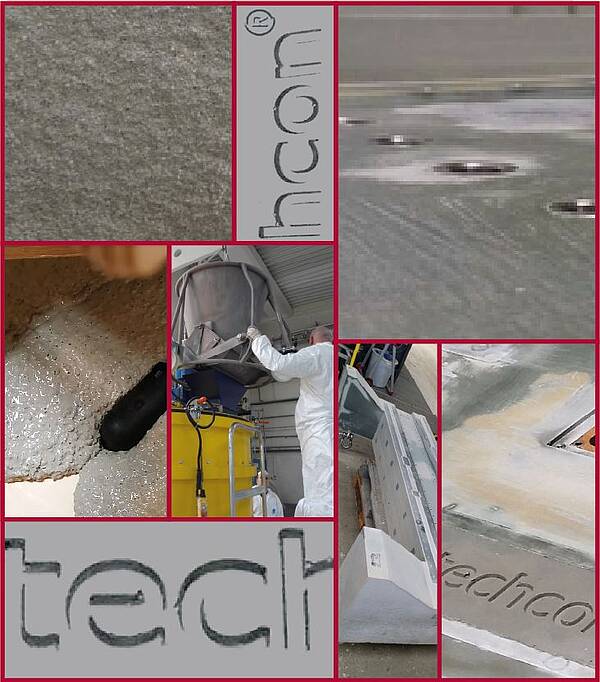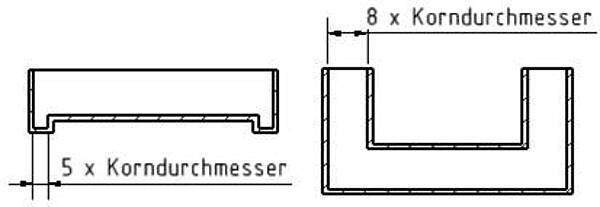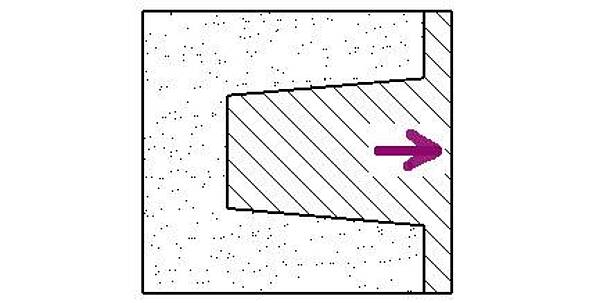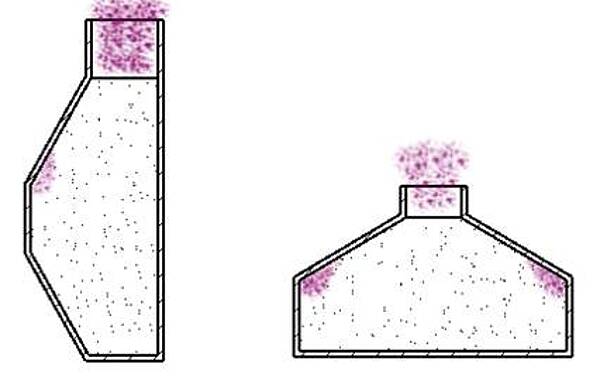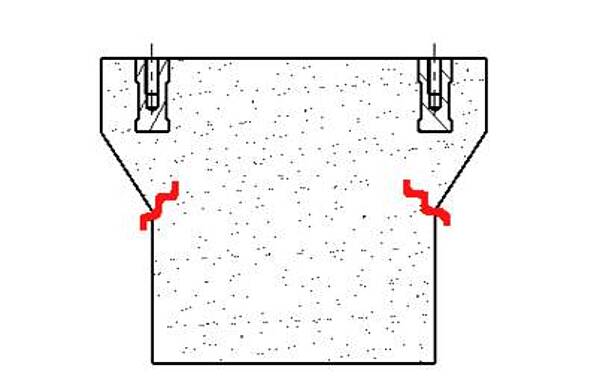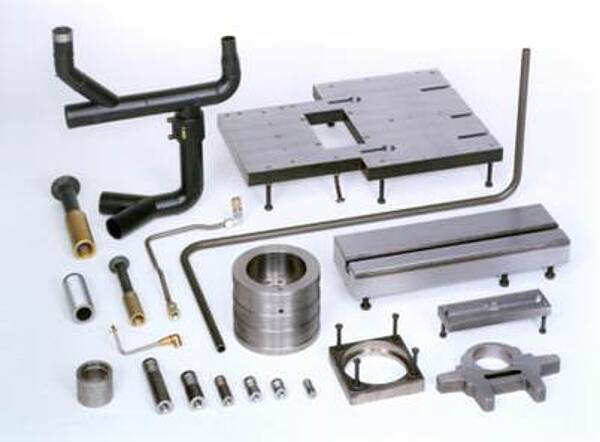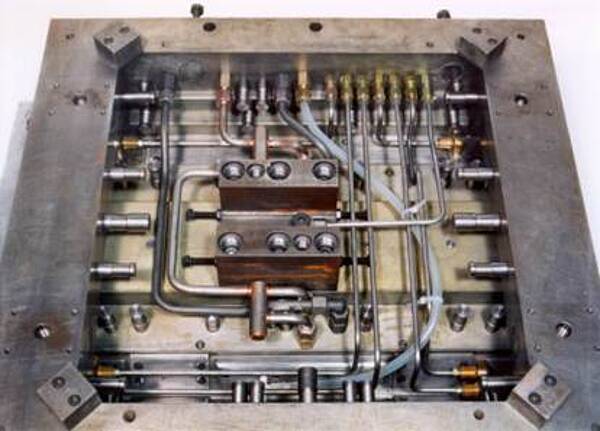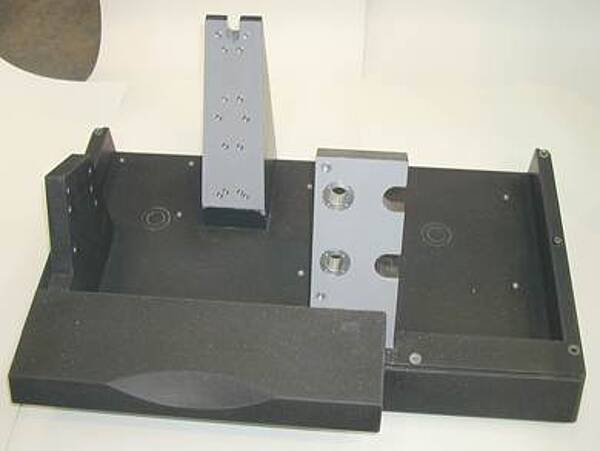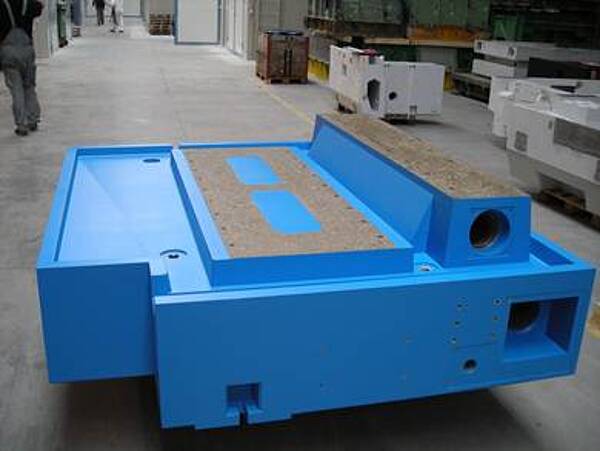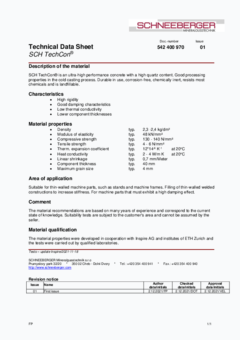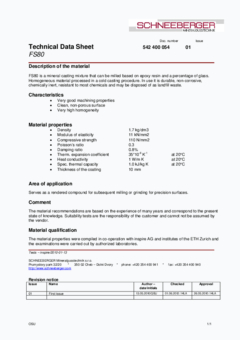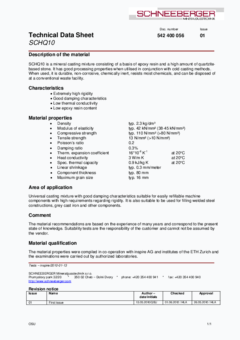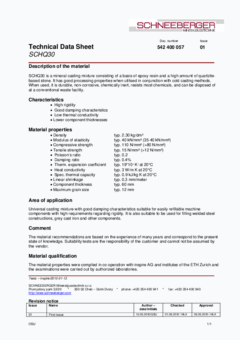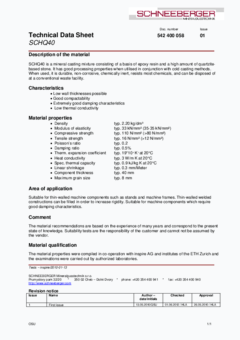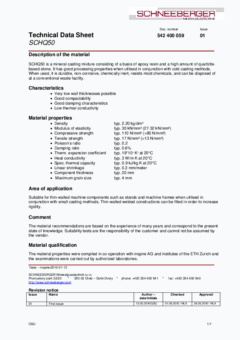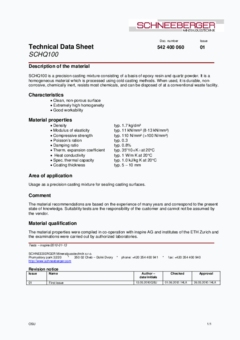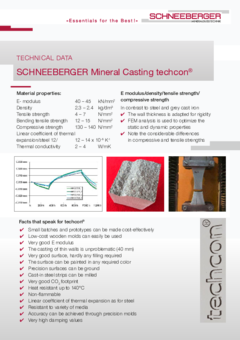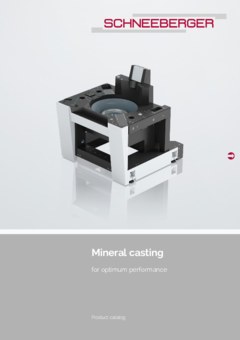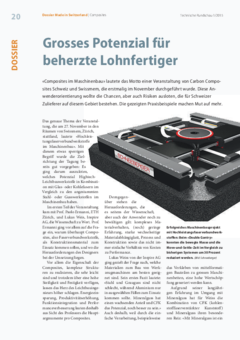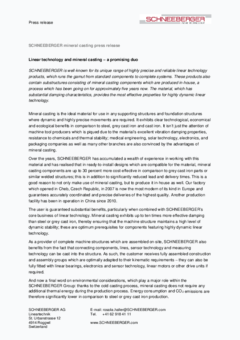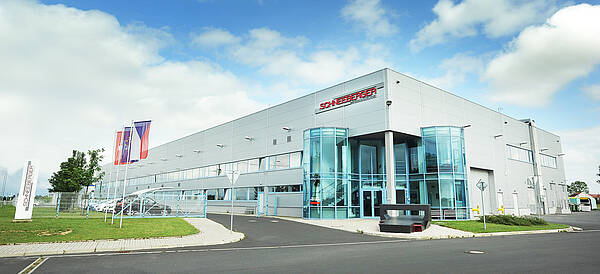What is mineral casting, and why is it a better alternative to steel or cast iron? //
Mineral casting is a cold casting process – meaning that no additional heat is required for its production. What is needed is generated in the process itself – through an exothermic reaction between the chemical components. This results in a high-precision material that is produced in an environmentally friendly manner. It offers excellent vibration damping, chemical resistance, and thermal stability. Compared to steel or cast iron, it stands out with lower energy consumption and higher precision, especially in dynamic applications such as machine bases and platforms.
Which industries benefit from the use of mineral casting? //
Mineral casting is used across various industries, including medical technology, electronics, solar, and packaging industries. Its vibration damping and environmental friendliness make it ideal for precision applications, such as in machine tools or pharmaceutical packaging systems.
How does mineral casting contribute to environmental friendliness? //
Mineral casting is a cold casting process, meaning no additional energy is required for production. Additionally, it reduces CO2 emissions by 1.6 tons per ton produced compared to steel or cast iron. SCHNEEBERGER mineral casting products are fully recyclable.
What are the specific advantages of machine bases made from mineral casting? //
Machine bases made from mineral casting provide excellent vibration damping, which leads to higher speed and precision in production processes. They are also chemically resistant and thermally stable, enhancing the machines' longevity.
Can mineral casting be customized to meet customer requirements? //
Yes, SCHNEEBERGER manufactures mineral casting products precisely according to the OEM customer's design specifications. The designs can include precision surfaces, integrated components such as sensors or electronic parts, and threaded inserts. This flexible design enables tailored solutions for a wide range of applications.





